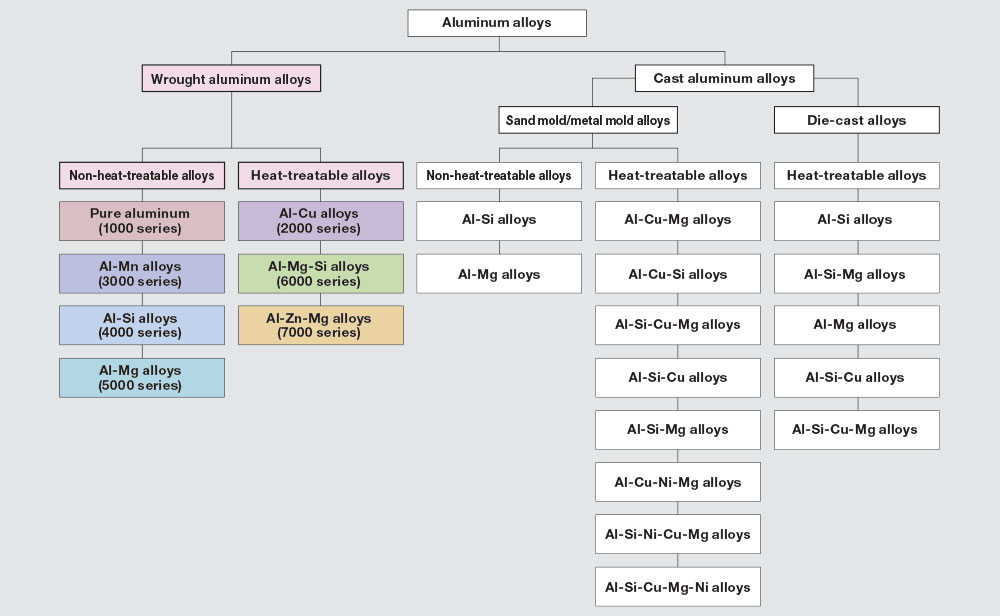Alcast Company Fundamentals Explained
Alcast Company Fundamentals Explained
Blog Article
3 Easy Facts About Alcast Company Explained
Table of ContentsWhat Does Alcast Company Mean?Alcast Company for BeginnersAlcast Company for Beginners5 Easy Facts About Alcast Company ExplainedAlcast Company Fundamentals ExplainedFacts About Alcast Company Uncovered
The refined distinction exists in the chemical web content. Chemical Contrast of Cast Light weight aluminum Alloys Silicon advertises castability by lowering the alloy's melting temperature level and boosting fluidness throughout spreading. It plays a critical duty in permitting intricate mold and mildews to be loaded properly. In addition, silicon adds to the alloy's strength and put on resistance, making it valuable in applications where sturdiness is critical, such as auto components and engine parts.It additionally boosts the machinability of the alloy, making it less complicated to process right into finished products. In this means, iron contributes to the total workability of aluminum alloys.
Manganese contributes to the toughness of aluminum alloys and improves workability (Foundry). It is commonly utilized in functioned aluminum items like sheets, extrusions, and accounts. The existence of manganese help in the alloy's formability and resistance to breaking throughout manufacture processes. Magnesium is a light-weight element that supplies strength and effect resistance to aluminum alloys.
Some Known Facts About Alcast Company.
Zinc improves the castability of light weight aluminum alloys and assists regulate the solidification process during casting. It boosts the alloy's toughness and solidity.

The key thermal conductivity, tensile toughness, return strength, and elongation differ. Amongst the above alloys, A356 has the highest possible thermal conductivity, and A380 and ADC12 have the lowest.
Getting The Alcast Company To Work

In precision spreading, 6063 is appropriate for applications where detailed geometries and top quality surface area finishes are vital. Instances consist of telecommunication units, where the alloy's remarkable formability permits sleek and cosmetically pleasing designs while keeping structural stability. Likewise, in the Illumination Solutions industry, precision-cast 6063 parts produce elegant and effective lights components that need detailed forms and good thermal performance.
The A360 displays remarkable elongation, making it suitable for complex and thin-walled elements. In precision casting applications, A360 is appropriate for industries such as Customer Electronics, Telecommunication, and Power Tools.
The Best Strategy To Use For Alcast Company
Its distinct properties make A360 a useful choice for accuracy spreading in these sectors, boosting item resilience and high quality. Light weight aluminum alloy 380, or A380, is a widely utilized spreading alloy with numerous distinctive features. It supplies superb castability, making it an optimal choice for precision casting. A380 shows great fluidity when molten, making sure complex and in-depth mold and mildews are properly reproduced.
In precision spreading, light weight aluminum 413 radiates in the Customer Electronic Devices and Power Devices industries. It's commonly used to craft elaborate parts like mobile phone housings, cam bodies, and power device housings. Its precision is remarkable, with tight resistances as much as 0.01 mm, guaranteeing remarkable item assembly. This alloy's premium deterioration resistance makes it an outstanding option for exterior applications, making sure long-lasting, long lasting products in the stated markets.
Some Known Details About Alcast Company
As soon as you have actually chosen that the aluminum die casting procedure appropriates for your task, an essential next action is picking one of the most appropriate alloy. The aluminum alloy you choose will significantly influence both the casting process and the buildings of the end product. Because of this, you should make your choice meticulously and take an informed method.
Identifying the most ideal aluminum alloy for your application will suggest evaluating a wide selection of attributes. The first classification addresses alloy characteristics that impact the production process.
The Best Strategy To Use For Alcast Company
The alloy you pick for die spreading directly influences several aspects of the casting procedure, like exactly how simple the alloy is to deal with and if it is prone to casting defects. Warm cracking, also known as solidification cracking, is a typical die spreading issue for aluminum alloys that can result in internal or surface-level tears or cracks.
Particular aluminum alloys are much more susceptible to warm fracturing than others, and your option must consider this. It can harm both the cast and the die, so you ought to look for alloys with high anti-soldering residential properties.
Deterioration resistance, which is currently a notable feature of aluminum, can vary considerably from alloy to alloy and is a vital particular to think about depending upon the environmental conditions your item will be revealed to (Foundry). Put on resistance is an additional residential or commercial property commonly sought in light weight aluminum products and can separate some alloys
Report this page